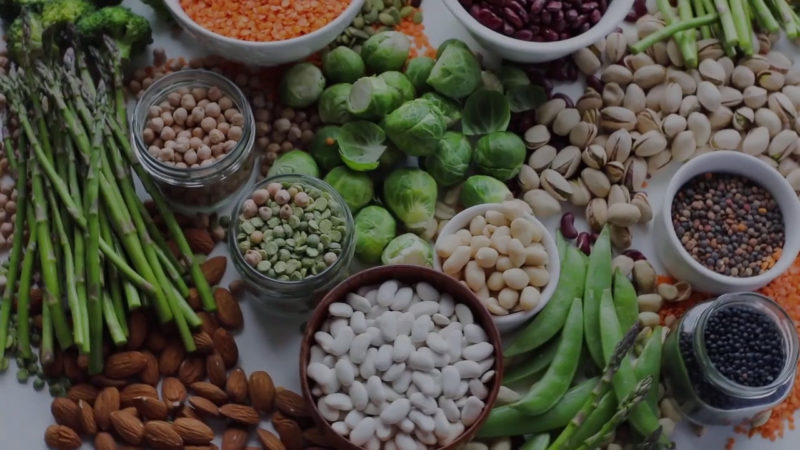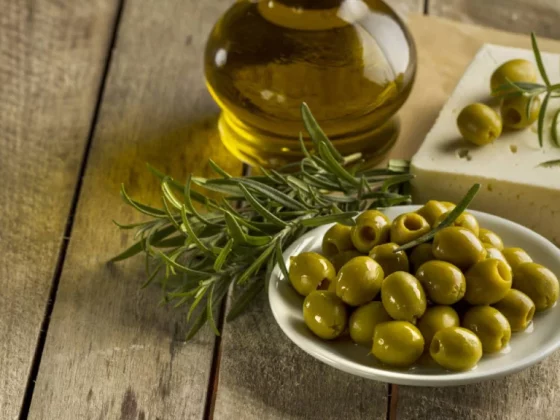Protein-rich vegetarian Indian food is an excellent option for vegetarians and non-vegetarians alike. The cuisine offers a broad range of options, from lentil-based dishes to protein-rich vegetables like chickpeas, kidney beans, and peas. With such a diverse selection, it’s no wonder that Indian cuisine has become a popular choice among those looking for healthy meal options.
One of the most popular protein-rich vegetarian dishes in Indian cuisine is dal or lentils. Lentils are an excellent source of plant-based protein, which makes them perfect for vegetarians or anyone trying to reduce their meat intake. Additionally, lentils are also high in dietary fiber and iron, making them an all-around healthy food option.
Another classic example of protein-rich vegetarian Indian food is chana masala or chickpea curry. Chickpeas contain both protein and fiber in abundance, making this dish not only delicious but incredibly nutritious as well. This classic dish is often served with rice or naan bread and can be enjoyed as part of a balanced diet plan to maintain good health.
What is wellhealthorganic.com? What are their goals?
Wellhealthorganic.com is an online platform that offers a wide range of organic and vegetarian Indian food products. Their goal is to promote healthy eating habits through the use of natural, organic ingredients that are free from harmful chemicals and preservatives. They believe in providing their customers with high-quality food products that not only nourish their bodies but also contribute towards sustainable living.
One of the key aspects that set wellhealthorganic.com apart is its emphasis on protein-rich vegetarian foods. With an increasing number of people adopting vegetarian or vegan lifestyles, there is a growing need for plant-based sources of protein. Wellhealthorganic.com addresses this need by offering a variety of protein-rich foods such as lentils, chickpeas, soybeans, and nuts.
In addition to promoting healthy eating habits, wellhealthorganic.com also aims to support local farmers and communities. By sourcing their ingredients directly from farmers across India, they ensure fair prices and sustainable farming practices. Through their efforts towards promoting healthy eating habits and supporting local communities, wellhealthorganic.com has become a trusted name among health-conscious consumers who value quality over convenience.
Types of Indian food: Vegetarian, vegan, and omnivorous
wellhealthorganic.com:protein-rich-vegetarian-indian-food, Vegetarianism is a way of life for many Indians who follow it due to religious or personal beliefs. Indian vegetarian cuisine is rich in protein and includes dishes like dal, paneer, chhole, rajma, and more. These dishes are made with lentils, beans, cottage cheese (paneer), vegetables, and spices that make them both flavorful and nutritious.
Veganism has gained popularity in recent years due to its ethical stance against animal cruelty. Vegan Indian cuisine eliminates all animal products from the diet while still offering delicious options like dal makhani made with plant-based cream or tofu butter chicken. Other popular vegan dishes include baingan bharta (roasted eggplant), chana masala (spiced chickpeas), and aloo gobi (potatoes and cauliflower).
Omnivorous Indians enjoy the best of both worlds by incorporating meat into their diets alongside traditional vegetarian options. Chicken tikka masala is one of India’s most famous exports- tender pieces of chicken cooked in a spicy tomato-based sauce that goes well with rice or naan bread. Lamb kebabs, fish curry, and prawn biryani are also popular omnivorous Indian dishes enjoyed by millions worldwide.
Protein sources in Indian food: Legumes, grains, and nuts
Legumes, grains, and nuts are some of the best sources of protein in Indian cuisine. Lentils, chickpeas, kidney beans, and black-eyed peas are all legumes commonly used in Indian cooking. They are not only high in protein but also rich in fiber and other essential nutrients such as iron and potassium.
Grains like quinoa, brown rice, and whole wheat flour contain significant amounts of protein. For instance, a cup of cooked quinoa has about 8 grams of protein which is more than what you find in a cup of milk. Nuts such as almonds, cashews, and pistachios can be added to curries or consumed as snacks for an extra boost of plant-based protein.
Incorporating these plant-based sources into your diet is an excellent way to meet your daily recommended intake of protein while enjoying delicious vegetarian Indian dishes that provide many health benefits besides being filling and satisfying.
Health benefits of Indian food: Cardiovascular health, weight loss, diabetes prevention
Cardiovascular disease is a leading cause of death globally, and diet plays a significant role in its prevention. Indian cuisine makes use of heart-friendly ingredients such as garlic, turmeric, cumin, and ginger that help prevent heart disease. Spices like cinnamon help regulate blood pressure while fenugreek seeds reduce cholesterol levels. Indian cuisine also emphasizes the use of whole grains like brown rice and wheat instead of processed options.
Indian food can also aid weight loss efforts due to its high fiber content. Whole grains present in Indian foods keep you feeling full for longer periods, reducing snacking between meals. Additionally, lentils and legumes are excellent sources of protein that keep the body fueled without adding unnecessary calories.
Diabetes is another health concern that can be managed with an Indian diet. Many traditional Indian dishes include low-glycemic-index foods like vegetables and pulses that prevent blood sugar spikes. Studies have shown that regularly consuming traditional Indian spices like turmeric helps improve insulin sensitivity in people with type 2 diabetes. Overall, incorporating more healthy Indian dishes into your meal plan could greatly benefit your cardiovascular health while aiding weight loss efforts and reducing the risk of developing diabetes.
Read Also… wellhealthorganic-com-5-herbal-teas-you-can-consume-to-get-relief-from-bloating-and-gas











